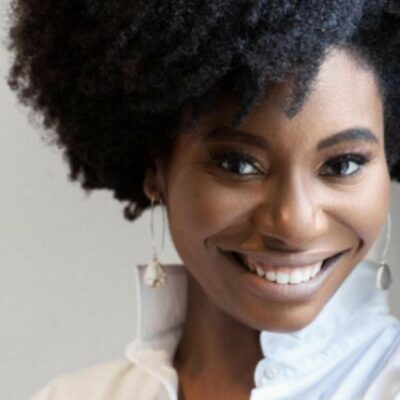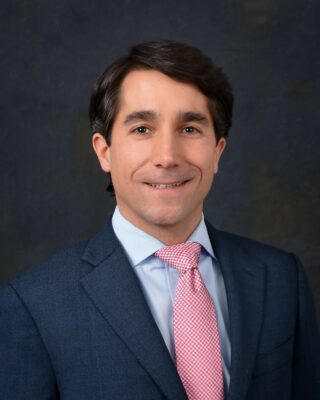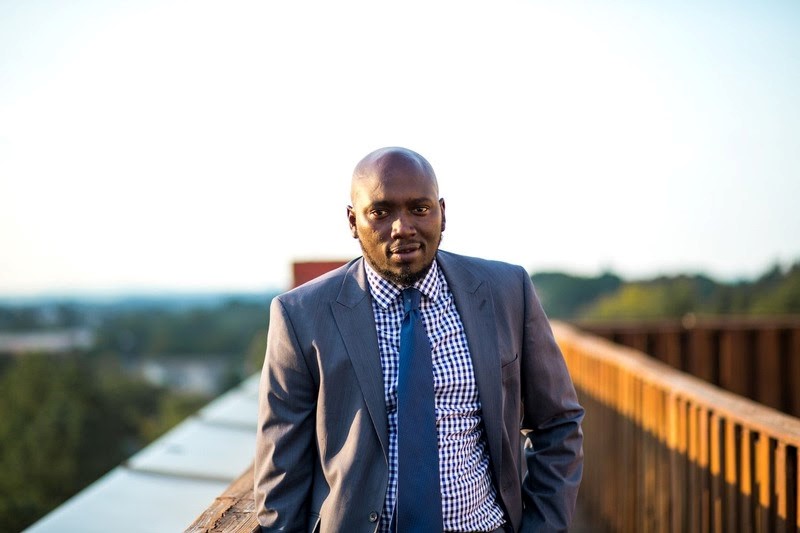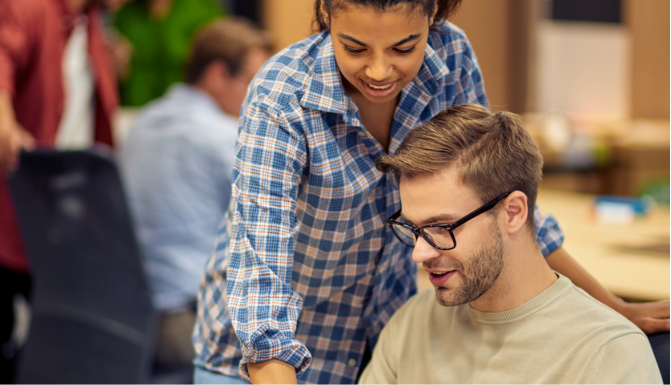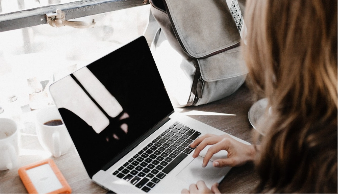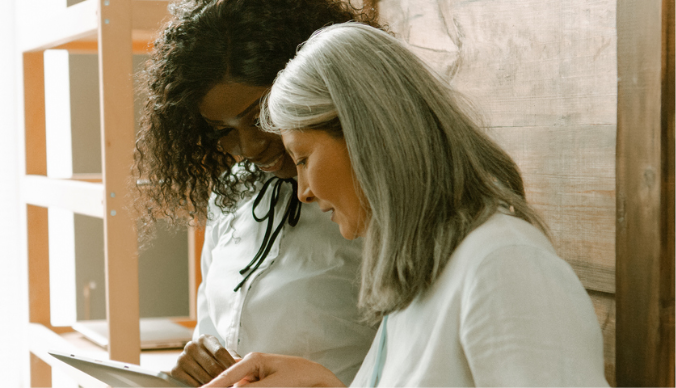The following is an interview with Mike Guggenheimer, Davidson class of ‘96. Mike joined the Blumenthal family of businesses in 2008 and currently serves as President and CEO of Blumenthal Holdings. Mike initiated the company’s move into industrial biotechnology with a 2012 investment in Terresolve Technologies, an innovative green tech company. Prior to joining Blumenthal Holdings, Mike was an operating partner for Blackstreet Capital Management, a private equity group that focused on control buyouts of under-performing corporate orphans. Mike has an M.B.A. from the Darden School of Business at the University of Virginia.
Watch the recording of our interview.
Liz: I would love for you to just set the stage for us a little bit and give some more color to your journey from Davidson to running Blumenthal Holdings today.
Mike: In high school, I had a lot of hands on jobs like construction, landscaping, and delivering pizzas. I did a little bit of everything which gave me a flavor and interest in business. I came to Davidson, obviously appreciative of the liberal arts approach, but I also didn’t know what I wanted at the time. At Davidson, I really kind of found a home in Davidson for the application of that thought with io psychology.
The io psychology focus as well as some of the relationships I gleaned really set the stage for me. Dr. Kello helped me get this internship at Spencer’s. It was kind of an HR internship but I really traveled around the business. I rode a truck, I went to the plant, learned a lot about the company. I started getting a feeling for manufacturing and industrial hands on opportunity.
When Milliken came to Davidson to recruit, I interviewed with them and got excited about the company. I waited around, but I got an opportunity to work for Milliken. It was perfect – I really didn’t know what I was getting into, but I had about 25 people reporting to me only a year or two out of college. [I] learned a ton about myself and skills as a manager. I went to business school, thinking I probably wouldn’t come back to Milliken.
Coming out of business school, I was looking at management consulting and general management of big companies. I really saw this opportunity to come back to Milligan and craft my own role. They didn’t know what to do with me coming back, so I said why don’t you let me help you figure out how to grow. We created a ventures group, and I was on a number of corporate strategy projects. I was able to have a nice impact and create a little business that’s still around today.
Another mentor of mine introduced me to Blackstreet Capital and the private equity world. It seemed to be the perfect next step for me because I wanted to run a business. While I learned a ton, when I got there I realized it wasn’t exactly what I envisioned my kind of approach to running a business would be.
It wasn’t very long after when I got the opportunity to talk to the Blumenthal family here. I made the switch to come join the family and have been here about 13 year. Over the past few years it’s been about structuring the business for the next few decades.
Liz: Can you speak more specifically about how Davidson provided you that foundation and the io program with Dr. Kello?
Mike: Davidson prepares you to learn how to learn. I came into Milliken with everyone being engineers and I was a psychology major. But I realized the engineers don’t know any more about this robot than I do.
[At Davidson], you’re thinking about things from different models; you look at things from very different perspectives and angles.
From io psychology specifically, what really resonated with me was beginning to learn about teamwork and how a group of individuals can actually produce results that are greater than the sum of their parts.
You learn how to work with others, through others, developing teams, thinking about relationships, thinking about conflict…right now my role is more than 50% people things. Understanding io psychology and understanding personalities and people in teamwork is super powerful now.
The other thing about Davidson and something I’m proud of is that it’s not shy about being a tough place; it’s hard work. But it’s a place where you have to learn how to blend work and play. The earlier you learn how to work hard when you need to and then play when you can the better. Davidson does a really good job of balancing those things.
Liz: For the students in the audience who might be considering going to business school, could you talk a bit about that shift and that blend [regarding group work & individual work]?
Mike: With the schools we’re talking about, you’re immediately thrown into a situation where you might choose your team or maybe your team is chosen for you. You have to figure out how to navigate that which is really important. Seeking out those opportunities may be something you do early on. The notion that the collaboration and power of multiple perspectives is going to be really important.
At the start I didn’t think I could create a business or start it from scratch. My thought was that maybe there was an opportunity in other ways. I appreciate creativity in a lot of other ways that I didn’t back then. In my view, lots of different things are entrepreneurial in nature. I came really close to buying a little plastic recycling company. A lot of the themes about entrepreneurship are similar, you can just put them in different contexts.
[Thinking about] do you have a problem and for whom, and putting your mind to who you are solving for. Is it big enough to be interesting, can it scale, and can you sustain it? I found myself at different times of my career looking through that lens. It’s unfair to look at entrepreneurship as only starting a business from scratch in your garage.
Liz: Can you break down for us your work in control buyouts for underperforming corporate orphans?
Mike: Private equity is a really broad umbrella of investing and existing businesses. Blackstreet’s focus was on looking for things that had been neglected so to speak. It wasn’t quite a turnaround, but there was an aspect of that. It was underperforming in the sense that it hadn’t been given the resources or attention that it needed.
I’ve always enjoyed thinking about how to fix things. I liked the idea of working with Blackstreet. Private equity is a great place to find entrepreneurial opportunities because it can mean a lot of different things. For me, that experience was an important pivot point in two ways. One, I had been with this large private company for many years – well resourced, a lot of investment decisions were about “what’s the payback”. Going into private equity, I was immediately faced with cash flow and balance sheets. It gave me an appreciation that I didn’t have before in terms of running a business.
I realized in that role that I was looking for something that was an autonomy or freedom type approach. At that point in my career I realized that I didn’t just want to run a business so to speak, but I wanted to be able to have an impact with the freedom to create. In that scenario, there were a lot of different players like investors and the CEO who were reporting to me. It was kind of messy at that point. I’m really blessed to have had that point in my career, but I also appreciate what I have now which is an intimate relationship with the owners I work with. It was about following your passion, what gets you excited and really feeling like you have some energy behind it.
Liz: Where have been some of your bigger successes and failures you’ve faced?
Mike: I’ve learned much from the mistakes I’ve made, and that’s where some of my greatest leaps forwards are from. We’ve dealt with a lot of interesting challenges over the last couple years. We really made a decision that we can’t be everything, and we needed to focus on building brands, research and development, and innovation. We made the decision to exit manufacturing and exit to contract packagers and warehouses. It was very complex; we did a lot of things at once. We knew there was some uncertainty and potential roadblocks on the way.
We hit a big one in that the outside warehouses we had lined up could not do what we were doing before. It was a really big challenge. The first reaction was thinking “oh man, we made a big mistake here”. [You’ve] got to live in the present, in the here and now. This is where the team comes into play: we went into this knowing it wasn’t going to be easy, and now we have to adjust.
We brought the warehouse back here in Charlotte in about a third of the time of any other warehouse. It was a real lesson in a team rallying around a challenge and putting that mistake behind us and say, “We can’t worry about that now, we have to deal with what’s in front of us.”
The other thing that came up for me was the humane aspect of running a business. Having to close the plant the first time was a very difficult decision, but the right decision strategically. I will never forget the day I had to stand in front of all those people and say why we were doing it. We had dealt with everything so transparently and honestly, and that day everyone came up to me thanking me and thanking the Blumenthal Family. It was a real eye-opener about how important it is to treat people a certain way and be transparent about why you’re doing things.
Tying it back to Davidson a bit – there’s a really close knit aspect to Davidson. I can call a Davidson grad tomorrow that doesn’t know who I am, and they’ll take my call and offer to help. The idea of being honest and treating people with respect is essential to building and leading teams.
Liz: I think you mentioned when moving warehousing back to Charlotte some of the first people you called to bring back were the ones you let go. That’s something that’s not always highlighted, how challenging that is. It shows how important clarifying your role as a leader is and how you want to present yourself. How has Davidson help set you up for that type of empathy and empathetic leadership?
Mike: The other thing that comes to mind is the long view versus the short view. I’ve been fortunate to be in private companies, and some of that long view is natural for those businesses. If you take the long view, a lot of times you sacrifice something in the short term. A big lesson for me is having that fortitude to keep that long view in mind in how you deal with people, your partners, and the business.
Liz: How do you think someone coming out of a liberal arts educational experience can redefine what it means to be an entrepreneur or an innovator?
Mike: Refusing to accept the conventional definition of entrepreneurship is important. For a Davidson student or for anyone, I think of it as solving a problem. It’s innovation in a very hands on self-built way. The liberal arts program, Davidson particularly, there’s an innate curiosity and exploration that comes out of it. Entrepreneurship can be about the curiosity to solve a problem and create something.
The other thing I think is interesting about entrepreneurship is that you can get yourself in a tunnel of looking at things. The openness to accept things that you might not be expecting can be really powerful. That’s a way to redefine entrepreneurship – it isn’t necessarily this linear walk.
We respond to customers asking for cleaners, disinfectants, asking us what to use to clean. We started rallying around that, and now two steps down the road we’ve developed our own electrostatics spray for these technologies. It was never in our mind to begin with, it came from figuring out how we can help. The curiosity, the openness, not necessarily assuming there’s a prescription of how to do it is crucial.
Liz: I was speaking with a student a few days ago in my office hours, and we talked about her ability to put seemingly disparate things together in a new configuration. She felt very well prepared and said that it was even one of her unique differentiators in job interviews.
Mike: That’s the whole multiple mental models idea – looking at things from a 360 view. If you’ve been trained in a lot of different areas, you’ll have an ability to put together pieces really quickly. That’s super powerful in entrepreneurship. You’ve got all these functions to deal with, but if you’re not tied to one lens you’ll be able to see how the pieces fit together.
Question from Audience: Can you talk some more about the importance of networking, working with mentors, and staying connected to people that can help you?
Mike: I’m going to give Dr. Kello my gratitude. He was one of my first significant mentors. He’s been a partner for me over the years in different ways. At Davidson he played an important role getting the Spencer’s internship and Milligan. There’s a lot of advocacy for students at Davidson, and my relationship with Dr. Kello carries on.
I think that identifying people at different stages of my life, whether it’s something I can offer or someone who can push me, it’s really important. One of the big lessons for me is self-reflection. If you’re an entrepreneur or running sometimes, there’s not always a lot of people to talk to. I think it’s essential to identify people who will challenge you and be good sounding boards.
Question from Audience: What do you do to build and sustain the culture at Blumenthal?
Mike: I look at it less of culture, but rather what the operating principles we’re going to hold dear are. I use that not only to think about the team we want to have and build, but also about making sense of what we’re doing. We have these operating values that we think about, but rather than something you just post on a board, it’s how we differentiate.
It also becomes really powerful in terms of talent acquisition. I still interview everyone that we hire. We just hired a bunch of people in the marine business, and our VP of talent and I were the ones who screened everybody. Of all the things I do, I feel that it’s important as anything. Getting the right talent and getting them excited about what we’re doing is really important.
The notion of fit is important. A lot of times when I interview people, I’ll tell them the bad stuff. We want to develop people and have them feel like it’s what they really signed up for.
Liz: A lesson I had to learn is as an employee having agency to make the choice to join an organization. There’s an analysis, a self-reflection about what I really value and if it’s a match with the organization.
Mike: That is a great point, it’s really an active choice of “Is this a fit for me?” It doesn’t have to be a fit forever, it’s about being able to learn and grow.
Question from Audience: How you define innovation in your organization today, and how are you building that muscle within your respective teams?
Mike: As a small business, innovation has to be embedded in everything we do. We try to embed innovative thinking into everything, and have everyone be empowered. Innovation doesn’t always have to be an amazing huge idea that saves the world. It can be little innovations that add up.
Over time, we’ve had to think about how we talk about objectives and goals. If you’re constantly punishing failures, people will be risk-averse and not try things. You have to find the balance of understanding risk, but also celebrating things that didn’t work.
For our businesses, it’s about defining where we want to play and how we think we’re going to win. If you have a clear understanding of what you can do differently, it’s a little easier to think about if an idea fits with your goals.
Liz: Can you speak more about how you’re communicating your strategy to everyone and ensuring that people clearly understand so feel empowered to take action without explicitly being told to do so?
Mike: There’s not an easy answer to that, I’m constantly trying to do that. Dr. Kello would say you can’t possibly over communicate on these types of issues. It starts with defining an aspiration for what we’re trying to do as a business. We define it as a “who”, who we’re trying to solve a problem for. It’s about the industry or the people that it’s for.
We have a one page document that shows people and ourselves what our true north is. I try to reiterate the big picture of what we’re trying to be and why. It’s important to keep talking about it. The pandemic has created new ways for me to talk to people. It’s morphed into small team zoom meetings. I had a meeting this morning that was “ask me anything” with our IT group. The more I do that, the more people will ask why we’re doing things, which is when the storytelling comes out.
Question from Audience: How important has the history or legacy of the companies been, and how do you look back to move forwards?
Mike: As you were reading that question, a thought came to my mind about my past experiences. Some of my past businesses are not the most glamorous, so turning that history or legacy into pride is crucial. Whether it’s Milligan or Blumenthal, there’s such a strong reputation of doing business the right way. We’ve morphed that story into the acceptance and respect of the great history, but also understanding we can’t be the same company we were 90 years ago today. We don’t look like we did 20-30 years ago, and I’m willing to bet we’ll look different 20-30 years ago today.
Liz: For students interested in going to a startup or smaller company, how would you advise them on evaluating the strength of the company, the background, and whether or not it’ll be a good fit?
Mike: For me, it’s about getting to the fundamentals and really understanding the business. IF the people you’re talking to can articulate that very well, that’s very important. As you ask questions about your passion and goals, you’ll be able to see what they’re doing. I tend to shy away from opportunities that I can’t understand at a foundational level.
Liz: What’s an ask and challenge you have of this community as we’re trying to build it out?
Mike: Don’t be afraid to go down a path that isn’t the predictable or expected path. Don’t feel the pull to follow the herd. Follow your curiosity and follow your interests. Emphasize places where you can feel like you can learn and grow and that’ll pay off. There are so many people in the Davidson network eager to help out anyone in Davidson. Don’t be afraid to ask or engage with the alumni base. I was excited about this simply for the aspect of giving back. I’ve had a lot of help on the way, and it’s important to pay it forward. Don’t be afraid to ask for it![/vc_column_text][/vc_column][/vc_row]
